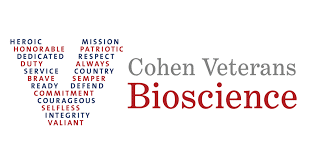
21 Oct Psychiatric Subtypes Identified by AI-Enhanced EEGs
MedicalResearch.com Interview with:

Dr. Etkin
Amit Etkin, MD, PhD
Department of Psychiatry and Behavioral Sciences
Wu Tsai Neurosciences Institute, Stanford Universitu
Stanford, CA
MedicalResearch.com: What is the mission of Cohen Veterans Bioscience – CVB?

Response: Cohen Veterans Bioscience (CVB) is a non-profit 501(c)(3) research biotech dedicated to fast-tracking the development of diagnostic tests and personalized therapeutics for the millions of Veterans and civilians who suffer the devastating effects of trauma-related and other brain disorders.
To learn about CVB’s research efforts visit www.cohenveteransbioscience.org.
MedicalResearch.com: How can patients with PTSD or MDD benefit from this information?
Response: With the discovery of this new brain imaging biomarker, patients who suffer from PTSD or MDD may be guided towards the most effective treatment without waiting months and months to find a treatment that may work for them.
MedicalResearch.com: What is the background for this study?
Response: This study, which was supported with a grant from Cohen Veterans Bioscience, grants from the National Institute of Mental Health (NIMH and other supporters, derives from our work over the past few years which has pointed to the critical importance of understanding how patients with a variety of psychiatric disorders differ biologically. The shortcomings of our current diagnostic system have become very clear over the past 1-2 decades, but the availability of tools for transcending these limitations on the back of objective biological tests has not kept pace with the need for those tools.
In prior work, we have used a variety of methods, including different types of brain imaging, to identify brain signals that underpin key biological differences within and across traditional psychiatric diagnoses. We have also developed specialized AI tools for decoding complex patterns of brain activity in order to understand and quantify biological heterogeneity in individual patients. These developments have then, in turn, converged with the completion of a number of large brain imaging-coupled clinical trials, which have provided a scale of these types of data not previously available in the field.
MedicalResearch.com: What are the main findings?
Response: In the current study, we used electroencephalography (EEG) data to discover subgroups within the traditional diagnoses of post-traumatic stress disorder (PTSD) and major depressive disorder (MDD) populations, who can be identified based solely on patterns of brain connectivity. While groups did not differ in terms of clinical symptom severity prior to treatment, they had strikingly different responses to the range of currently available treatments. One of the subtypes responded poorly to either psychotherapy (in the PTSD group) or antidepressant medications (in the MDD group). However, both subtypes responded similarly to noninvasive transcranial magnetic brain stimulation (TMS) treatment. This suggests that, for one patient subtype, psychotherapy or medication treatment is best, while for the other subtype patients may be better served by advancing faster to TMS treatment – all based on a “biological brain diagnosis” with EEG that is independent of traditional clinical criteria for PTSD or MDD. This study generates new evidence in support of a brain imaging biomarker that may help guide people suffering from post-traumatic stress disorder (PTSD) or major depressive disorder (MDD) towards the most effective treatment.
MedicalResearch.com: What recommendations do you have for future research as a result of this work?
Response: Any study of a clinical intervention must include direct measures of relevant biology, such as through EEG, in order to be able to understand who responds best and why. Without this, we are likely to see small effects of treatments or outright failures, by virtue of not having identified the right treatment for the right patient, and with that continually increased suffering and costs of care.
Would you briefly explain what is meant by a connectome and how AI can help detect potential biomarkers disease activity or resistance?
Why is AI or the machine learning techniques cited in the study important?
Response: A connectome refers to the patterns of connections between brain areas – based on anatomy or functional communication between regions. This type of pattern describes how the brain processes information, as well as how people differ in those capacities. AI is a tool-set that allows us to leverage complicated mathematical operations to decode patterns in data such EEG connectomics in order to read simpler signals out of highly complex data. As such, collecting EEG data in the context of sufficiently large clinical trials, when analyzed through AI, enables us to find patterns of brain activity that predict treatment outcome, even if such patterns are themselves too hard to read “by eye” from the data.
MedicalResearch.com: Is there anything else you would like to add?
Response: Ultimately, this approach is at its beginning. While the near-term clinical promise is substantial, and the potential high for FDA approvable tools, we still have much to learn about the broader range of psychiatric disease as well as treatments beyond those examined here.
One important disclosure: Dr. Etkin is the CEO and Founder of Alto Neuroscience, a Bay Area startup company developing precision therapeutics for the brain. He is presently on leave from Stanford while he leads Alto.
Citation:
Zhang, Y., Wu, W., Toll, R.T. et al. Identification of psychiatric disorder subtypes from functional connectivity patterns in resting-state electroencephalography. Nat Biomed Eng (2020). https://doi.org/10.1038/s41551-020-00614-8
JOIN OUR EMAIL LIST
[mailpoet_form id="5"]We respect your privacy and will never share your details.
Last Modified: [last-modified]
The information on MedicalResearch.com is provided for educational purposes only, and is in no way intended to diagnose, cure, or treat any medical or other condition. Always seek the advice of your physician or other qualified health and ask your doctor any questions you may have regarding a medical condition. In addition to all other limitations and disclaimers in this agreement, service provider and its third party providers disclaim any liability or loss in connection with the content provided on this website.
Last Updated on October 21, 2020 by Marie Benz MD FAAD
